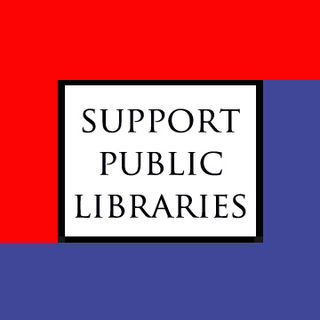 W
WAccess 2 Advocacy is an independent advocacy service based in Rhyl, Denbighshire in North Wales. They work with people living in the county over the age of 50, but will soon be assisting those aged 11-25 too. The service aims to ensure that people have the opportunity to make their voice heard, empowering them to make independent decisions and gain confidence to deal with similar issues, in the future.
 W
WAdvocacy evaluation, also called public policy advocacy design, monitoring, and evaluation, evaluates the progress or outcomes of advocacy, such as changes in public policy.
 W
WAn affinity group is a group formed around a shared interest or common goal, to which individuals formally or informally belong. Affinity groups are generally precluded from being under the aegis of any governmental agency, and their purposes must be primarily non-commercial. Examples of affinity groups include private social clubs, fraternities, writing or reading circles, hobby clubs, and groups engaged in political activism.
 W
WCarrotmob is a nonprofit organization based in San Francisco, California. It uses buycotts to reward a business's commitment to making socially responsible changes to the business. Carrotmob also refers to a global movement of community organizers who use the Carrotmob tactic of consumer activism as a way to help change businesses in their communities. In a Carrotmob buycott, businesses compete to be the most socially responsible business, and then a network of consumers spends money to support the winner.
 W
WCivil disobedience is the active, professed refusal of a citizen to obey certain laws, demands, orders or commands of a government. By some definitions, civil disobedience has to be nonviolent to be called "civil". Hence, civil disobedience is sometimes equated with peaceful protests or nonviolent resistance.
 W
WA demonstration is an action by a mass group or collection of groups of people in favor of a political or other cause or people partaking in a protest against a cause of concern; it often consists of walking in a mass march formation and either beginning with or meeting at a designated endpoint, or rally, to hear speakers. It is different from mass meeting.
 W
WDirect action originated as a political activist term for economic and political acts in which the actors use their power to directly reach certain goals of interest; in contrast to those actions that appeal to others ; by, for example, revealing an existing problem, using physical violence, highlighting an alternative, or demonstrating a possible solution.
 W
WEgging is the act of throwing eggs at people or property. The eggs are usually raw, but can be hard-boiled or rotten.
 W
WIn Internet activism, hacktivism, or hactivism, is the use of computer-based techniques such as hacking as a form of civil disobedience to promote a political agenda or social change. With roots in hacker culture and hacker ethics, its ends are often related to free speech, human rights, or freedom of information movements.
 W
WHuman shield is a legal, military and political term denoting a non-combatant who is either forced or volunteers to shield a legitimate military target in order to deter the enemy from attacking it. The use of human shields as a resistance measure was popularized by Mahatma Gandhi as a weapon of peace. On the other hand, the weaponization of civilians has also developed as a tactic by some non-state actors like ISIS, a tactic developed by Germany in the Franco-Prussian War in 1870.
 W
WLegal mobilisation is a tool available to paralegal and advocacy groups, to achieve legal empowerment by supporting a marginalized issues of a stakeholder, in negotiating with the other concerned agencies and other stakeholders, by strategic combined use of legal processes along with advocacy, media engagement and social mobilisation. As per Frances Kahen Zemans (1983) the Legal mobilisation is "a desire or want, which is translated into a demand as an assertion of one's rights".
 W
WShoe-throwing, or shoeing, showing the sole of one's shoe or using shoes to insult are forms of protest in many parts of the world. Shoe-throwing as an insult dates back to ancient times, being mentioned in verse 8 of Psalm 60 and the similar verse 9 of Psalm 108 in the Old Testament. Modern incidents where shoes were thrown at political figures have taken place in Australia, India, Ireland, Taiwan, Hong Kong, Pakistan, the United Kingdom, the United States, and most notably the Arab world.
 W
WIn politics, lobbying, persuasion, or interest representation is the act of lawfully attempting to influence the actions, policies, or decisions of government officials, most often legislators or members of regulatory agencies. Lobbying, which usually involves direct, face-to-face contact, is done by many types of people, associations and organized groups, including individuals in the private sector, corporations, fellow legislators or government officials, or advocacy groups. Lobbyists may be among a legislator's constituencies, meaning a voter or bloc of voters within their electoral district; they may engage in lobbying as a business. Professional lobbyists are people whose business is trying to influence legislation, regulation, or other government decisions, actions, or policies on behalf of a group or individual who hires them. Individuals and nonprofit organizations can also lobby as an act of volunteering or as a small part of their normal job. Governments often define and regulate organized group lobbying that has become influential.
 W
WMedia activism is a broad category of activism that utilizes media and communication technologies for social and political movements. Methods of media activism include publishing news on websites, creating video and audio investigations, spreading information about protests, or organizing campaigns relating to media and communications policies.
 W
WMilkshaking is the act of throwing milkshakes and other drinks at targets as a means of political protest in a manner similar to egging or pieing. The target of a milkshaking is splashed or splattered with a milkshake that is thrown from a cup or bottle. The trend gained popularity in the United Kingdom in May 2019 during the European Parliament election and was used against right-wing and far-right political candidates, such as Tommy Robinson, Nigel Farage and Carl Benjamin, as well as other members of the UK Independence Party (UKIP) and the Brexit Party.
 W
WMovements.org is an online platform working to connect activists worldwide. It was founded when The Alliance for Youth Movements rebranded itself in 2011. It is an online marketplace that connects dissidents in closed societies to individuals in open societies with experience in such areas as legal work, mathematics, science, media, PR and technology. When activists post requests for assistance, experts and professionals respond with offers of assistance.
 W
WTactical Tech is an international nongovernmental organization that engages with citizens and civil-society organisations to explore and mitigate the impacts of technology on society. Since 2012, the organisation has been based in Berlin.
 W
WAs an act of protest, occupation is a strategy often used by social movements and other forms of collective social action in order to squat and hold public and symbolic spaces, buildings, critical infrastructure such as entrances to train stations, shopping centers, university buildings, squares, and parks. Opposed to a military occupation which attempts to subdue a conquered country, a protest occupation is a means to resist the status quo and advocate a change in public policy. Occupation attempts to use space as an instrument in order to achieve political and economic change, and to construct counter-spaces in which protesters express their desire to participate in the production and re-imagination of urban space. Often, this is connected to the right to the city, which is the right to inhabit and be in the city as well as to redefine the city in ways that challenge the demands of capitalist accumulation. That is to make public spaces more valuable to the citizens in contrast to favoring the interests of corporate and financial capital.
 W
WAn open letter is a letter that is intended to be read by a wide audience, or a letter intended for an individual, but that is nonetheless widely distributed intentionally.
 W
WPamphleteer is a historical term for someone who creates or distributes pamphlets, unbound booklets intended for wide circulation.
 W
WA pieing or pie attack is the act of throwing a pie at a person. In pieing, the goal is usually to humiliate the victim while avoiding actual injury. For this reason the pie is traditionally of the cream variety without a top crust, and is rarely if ever a hot pie. In Britain, a pie in the context of throwing is traditionally referred to as a custard pie. An aluminium pie pan or paper plate filled with whipped cream or more typically, shaving foam can substitute for a real pie.
 W
WA piquetero is a member of a group that has blocked a street with the purpose of demonstrating and calling attention over a particular issue or demand. The word is a neologism in the Spanish of Argentina, coming from piquete, that is, its specific meaning as a standing or walking demonstration of protest in a significant spot.
 W
WA political campaign is an organized effort which seeks to influence the decision making progress within a specific group. In democracies, political campaigns often refer to electoral campaigns, by which representatives are chosen or referendums are decided. In modern politics, the most high-profile political campaigns are focused on general elections and candidates for head of state or head of government, often a president or prime minister.
 W
WA protest is a public expression of objection, disapproval or dissent towards an idea or action, typically a political one. Protests can take many different forms, from individual statements to mass demonstrations. Protesters may organize a protest as a way of publicly making their opinions heard in an attempt to influence public opinion or government policy, or they may undertake direct action in an attempt to enact desired changes themselves. Where protests are part of a systematic and peaceful nonviolent campaign to achieve a particular objective, and involve the use of pressure as well as persuasion, they go beyond mere protest and may be better described as cases of civil resistance or nonviolent resistance.
 W
WPublic library advocacy is support given to a public library for its financial and philosophical goals or needs. Most often this takes the form of monetary or material donations or campaigning to the institutions which oversee the library. Originally, library advocacy was centered on the library itself, but current trends show libraries positioning themselves to demonstrate they provide "economic value to the community."
 W
WRadical cheerleading is a performative style of political activism, derived from mainstream cheerleading. Radical cheerleading combines elements of peaceful protest or non-violent direct action with theatrical elements including costuming, spectacle and choreographed dance. Radical cheerleading was created by sisters Cara Jennings, Aimee Jennings and Coleen Jennings in Miami, Florida, USA in 1996. It grew to become an international movement with squads in the United States, Canada and the European Union. Radical cheerleaders create and adapt cheers that promote feminism and left-wing ideals.
 W
WRepertoire of contention refers, in social movement theory, to the set of various protest-related tools and actions available to a movement or related organization in a given time frame.
 W
WSatyagraha, or holding firmly to truth, or truth force, is a particular form of nonviolent resistance or civil resistance. Someone who practices satyagraha is a satyagrahi.
 W
WSlacktivism tends to be a pejorative term for the practice of supporting a political or social cause by means such as social media or online petitions, characterized as involving very little effort or commitment. The action may have little effect other than to make the person doing it feel satisfied that they have contributed. Underlying assumptions promoted by the term are that these low-cost efforts are ineffective, and substitute for more substantive actions rather than supplementing them. Empirical investigation has found these assumptions are incorrect. The belief that slacktivism is effective varies across different groups and, support for slacktivism is contingent upon what people consider as successful activism.
 W
WA soapbox is a raised platform which one stands on to make an impromptu speech, often about a political subject. The term originates from the days when speakers would elevate themselves by standing on a wooden crate originally used for shipment of soap or other dry goods from a manufacturer to a retail store.
 W
WA tract is a literary work and, in current usage, usually religious in nature. The notion of what constitutes a tract has changed over time. By the early part of the 21st century, a tract referred to a brief pamphlet used for religious and political purposes, though far more often the former. Tracts are often either left for someone to find or handed out. However, there have been times in history when the term implied tome-like works. A tractate, a derivative of a tract, is equivalent in Hebrew literature to a chapter of the Christian Bible.
 W
WTree sitting is a form of environmentalist civil disobedience in which a protester sits in a tree, usually on a small platform built for the purpose, to protect it from being cut down. Supporters usually provide the tree sitters with food and other supplies.